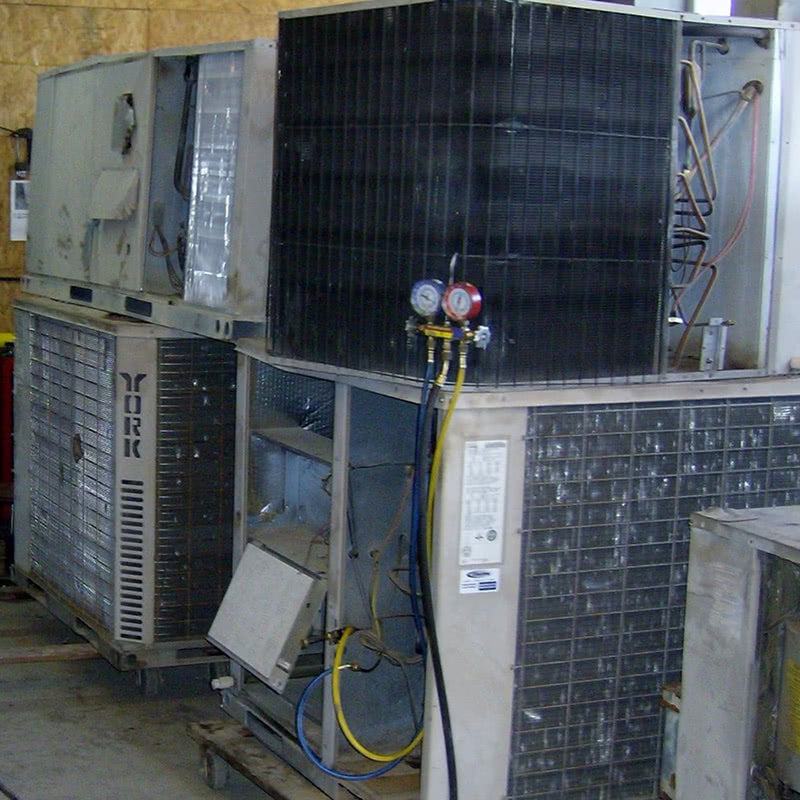321-245-1400
321-245-1400

As energy efficiency becomes a top priority for businesses and homeowners alike, the HVAC industry has seen a growing focus on reducing environmental impact while maximizing system performance. One often-overlooked practice in this effort is regular HVAC disposal. For many, disposing of HVAC systems is often reserved for units that are beyond repair. However, for systems that still run and are decades old, HVAC disposal and replacement can greatly reduce energy waste, enhancing system efficiency, and supporting sustainable practices.
Heating and cooling systems are among the largest consumers of energy in commercial buildings and homes, typically accounting for 40-60% of a property’s total energy usage. This substantial energy consumption underscores the importance of maintaining efficient HVAC systems, as even small inefficiencies can lead to increased energy usage during the lifespan of the HVAC unit. The U.S. Department of Energy notes that outdated HVAC units can increase energy bills by as much as 30%, emphasizing the value of upgrading to modern, energy-efficient systems when appropriate. While consumers shouldn't be replacing their HVAC unit every few years, HVACs that are double their lifespan should be considered for replacement, even if the unit has been maintained and still functions.
HVAC systems today are engineered with advanced technologies and utilize eco-friendly refrigerants that reduce environmental impact and optimize energy use. Outdated HVAC units often utilize refrigerants that are heavily regulated by the EPA, due to their negative environmental impact. Low-GWP (global warming potential) refrigerants in modern systems have a significantly smaller environmental footprint than traditional refrigerants. With regulations phasing out harmful refrigerants like R-410A, new HVAC units are designed to meet these standards, providing better compliance and future-proofing against stricter environmental policies.
A big benefit of replacing older HVAC systems is financial incentives such as tax credits and rebates. Many states and utility companies offer these rebates or tax credits for installing energy-efficient HVAC systems, effectively reducing the upfront cost of upgrading. Staying compliant with environmental standards is another important consideration. As the Environmental Protection Agency (EPA) tightens regulations on HVAC refrigerants, businesses and homeowners with older units may eventually be required to transition to newer, compliant systems. Proactively upgrading can help property owners avoid potential fines and avoid costly disruptions tied to outdated, non-compliant HVAC systems.
In an era of evolving environmental standards, regularly disposing of and replacing HVAC systems past their lifespan is an investment for a sustainable future. By adopting modern, energy-efficient systems, property owners contribute to broader environmental goals while ensuring their buildings are equipped for future regulatory changes. Partnering with certified HVAC recyclers and installers makes the transition seamless and guarantees compliance with disposal and recycling regulations.
Eco Care is a leading HVAC recycler, providing top-tier recycling services for environmental sustainability and regulatory compliance. With expertise in handling refrigerants and other HVAC components, Eco Care ensures that outdated units are safely decommissioned per EPA guidelines. If you are a business or homeowner looking to dispose of or recycle an old system call or contact us today.